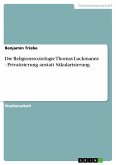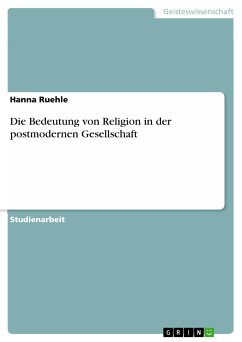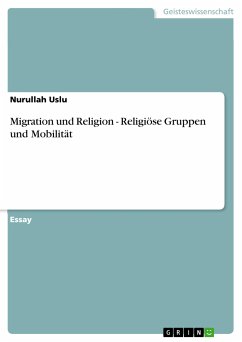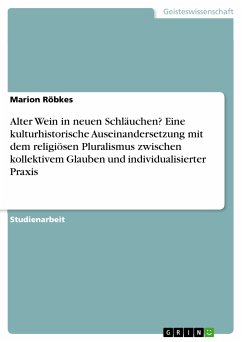Studienarbeit aus dem Jahr 2010 im Fachbereich Soziologie - Religion, Note: 1,3, Europa-Universität Viadrina Frankfurt (Oder), Veranstaltung: Entwicklung des modernen Atheismus, Sprache: Deutsch, Abstract: This homework is discussing the morals of religion as demonstrated in two specific cases – i.e. speciesism and vegetarism on one hand, abortion and euthanasia on the other – in which religious attitudes are being compared with atheistic, non-religious ones. It focuses hereby on the argumentation drawn by the Australian philosopher Peter Singer in his works „Practical Ethics“ (1979) and “How Are We to Live?“ (1993). Singer, using a consequent-utilitarian way of reasoning, has a (still) rather uncommon approach to speciesism and euthanasia; he is arguing rational and without any actual religious background (even though he originally has a Jewish heritage) which strongly contradicts the traditional, conservative way of religious think-ing. Here this work is attempting to show that it is not even possible to live an ethic life without being religious, but that religion often even fails to succeed in demonstrating an ethic life. The reason for this is simply that the religious writings known today are not made for a complex and modern generation of human beings as are living on this planet today.
Bitte wählen Sie Ihr Anliegen aus.
Rechnungen
Retourenschein anfordern
Bestellstatus
Storno









